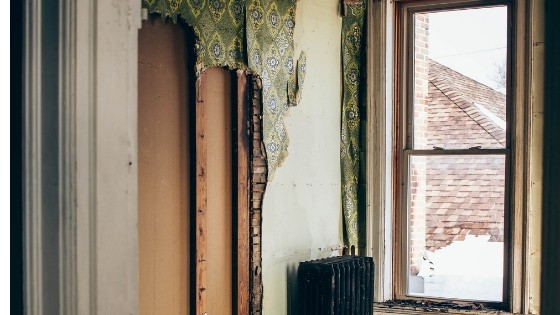
If you’re a fan of Australian TV series The Block, you’ve probably noticed there’s more to learn from watching than just renovations and interior design.
Like many reality TV shows, The Block is largely an exploration of human relationships. This one just happens to be against the backdrop of home renos.
I confess: I am an ardent fan of the show. And not just because I’ve recently been ensconced in some domestic improvements of my own!
As a Psychologist and a couples’ therapist, I find the interpersonal dynamics on this program fascinating. Let’s take a look at some of the lessons in the romantic and platonic partnerships to be found on The Block.
The Block Couples 2018
Firstly, a brief rundown of the couples.
This year, we have the usual mix straight from Casting Central (I admit it sounds like a jaundiced view but there does seem to be something rather formulaic about the casting for reality TV programs:
- The young, energetic couple
- The older, experienced pair
- The same-sex buddies
- The volatile relationship
- The couple who play up their lack of design expertise whilst being lovable and relatable.
Please note that my comments here are based solely on what can be observed in how the show is edited (again a jaundiced view about reality TV shows), and may not actually be how these couples operate IN REAL LIFE.
Communication Styles in The Block 2018 – A Psychologist’s Perspective
The Young Energetic Couple
So, with the young and energetic couple, what communication style do we see?
They tend to be aligned in their goals and energy, communication style and how they have fun. They appear to be a relatively new couple (I could be wrong) and are still learning to be together, but overall they support one another and breathe through difficulties for the most part.
However, these two have had some setbacks with their renovation experience. The strain of this has shown on their relationship with some harsh words being spoken and criticism, contempt, stonewalling and defensiveness coming into play.
Most recently, one partner has stepped entirely back from the design process, possibly in response to recent criticism from the other partner (perhaps a “well, YOU do it if you know so much” type of reaction?), a passive-aggressive way of saying that the criticism hurt.
Had they been able to talk over those feelings (one’s disappointment with their partner’s lack of tenacity and design confidence, and the other’s feelings of hurt at being criticised and perhaps not feeling supported) they may have been able to enter into the last weeks as unified as they started.
The Volatile Couple
With the volatile couple, we see a lot of positive words that don’t seem to be backed up with a truly supportive relationship – a clear example of when words don’t match actions.
This then leads to:
- Name-calling
- Showing contempt (lots of eye-rolling and turning away when their partner is speaking, and speaking over one another)
- Criticism of each other
- Defensiveness when an error is made
- Stonewalling (ignoring one another and walking away when the other is still speaking).
These are total danger signs for a relationship. But there are antidotes to these.
These two clearly care for one another but their individual experience of stress prevents them from attuning to one another.
They have some trouble in managing challenging situations and could gain much from being more supportive of one another when it is evident one or both are feeling the pinch of a deadline.
They may also benefit from learning some personal relaxation techniques.
Perhaps most importantly, they could learn how to have a stress-reducing conversation with each other:
What is it about this that is bothering you? Why is that? How can I help you/what do you need?
A strength of this Block 2018 couple is that they seem to be truly “themselves” with one another. They can laugh at themselves when they make a mistake, argue, melt down, or whatever. In their humour, there is great alignment.
The Older, Experienced Couple
With the experienced couple, right from the start it was evident that they can boost one another frequently with compliments and supportive communication. So far we have not seen this waiver. Well done to them!
They have had some bleak moments. But they’ve consistently had one another’s back, which is what breeds true trust in a relationship.
Their relationship has more of an “us against the world” (or The Block producers?) mentality than one of turning against one another.
This is ideally how couples should tackle challenges in life: including raising children (lovely, but at times difficult), navigating financial pressures, and managing careers and job stressors.
Couples who have absolute belief that they are there for one another tend to manage these life bumps with their relationship intact.
The Same-Sex Friends
The friends, though they have had reasons to feel annoyed with one another (or maybe I just think that), seem to have managed to get on with things rather than dwell on why X happened, or Y didn’t.
They have a great view of the bigger picture and don’t seem to get caught up in the detail. This is a great strength in any relationship, especially when both people are under the pump and stressed with time/money/whatever.
The Lovable Larrikins
The lovable larrikins are incredibly honest. Almost to a fault. They want to know the truth about everything and sometimes make others uncomfortable in their pursuit of that truth.
However, in their romantic relationship, this honesty puts them in a great position. They argue, they discuss it, resolve the issue, and (this is key) they make up – usually with a good dose of humour! These two know how to repair ruptures in their relationship and they do it swiftly, not letting acrimony fester and take hold.
This is truly great role-modelling for people with kids, because though we would all rather that the kids don’t see their parents argue, life happens and they will witness it. But if they can see disagreeing as a respectful difference of opinions, with a mutually agreeable outcome, they too can become masters of communication.

2 Critical Communication Lessons We Can Learn From The Block Couples 2018
Lesson 1: When one falters, the other steps up
The Block couples 2018 who are masters of communication really rally when the chips are down. We have seen people in tears, unwell, and just plain over it. For the couples who are aligned in their goals and their communication, this doesn’t mean both are down and out, but that the other picks up the slack. True teamwork happens for these couples.
For those who struggle to be a cohesive team, when one is down, everyone stops. This is evident by rooms not being completed on time, renovations poorly done, and excuses being made. This then leads the team to spiral further into a negative state.
When times are hard in your relationship – when one of you is ill, or tired of dealing with kids, or has had a bad day at work (or you are renovating – I know this one well), what do you do?
Do you support your partner and get on with things, picking up the slack, and not complaining? Or do you say it isn’t fair and opt out?
If the latter is you, try doing it the other way and see what happens.
Lesson 2: Watch your words
Masters of communication know that words are meaningful. Saying something hurtful to your partner, then excusing yourself later because you were angry, is not quite good enough.
The 2017 Block contestants were similar in many ways to this year’s. I recall one stylish couple having a stressful time and the husband speaking a bit rudely to his wife, who gently suggested he try saying that in a different way – I remember thinking it was a perfect example of keeping a clear boundary with your partner of what is acceptable and what is not. After this, he said it more politely, and they moved on with the job at hand. Brilliant!
What happens in your relationship after a harsh word is spoken? Is it acknowledged and repairs made? Does it get swept under the carpet and become a source of resentment?
Next time it happens (and it will – we are human after all!), try waiting until everyone has calmed down, then address it.
If you are the injured party, say why those particular words hurt and what they meant to you.
If you did the hurting, acknowledge what you said and the hurt it caused, apologise specifically for those words, and ask for forgiveness.
Relationship Insights with The Block Couples 2018
The Block, whilst an entertaining show about unrealistic renovations done with a tight budget and even tighter deadlines, provides interesting viewing of relationships under strain.
People are sleep-deprived (the first step in torture is sleep deprivation for a reason!), in a new environment, learning new skills, playing by a different set of rules than they are used to, missing home and family, and being filmed all the while!
Their defences are down and they show less attractive aspects of their personality and their relationship. This is what makes it so completely compelling (for me, anyway)! How do they cope, where are the strengths, who does it well, what can we learn?
Of course, my viewing of The Block is purely for professional development reasons…


